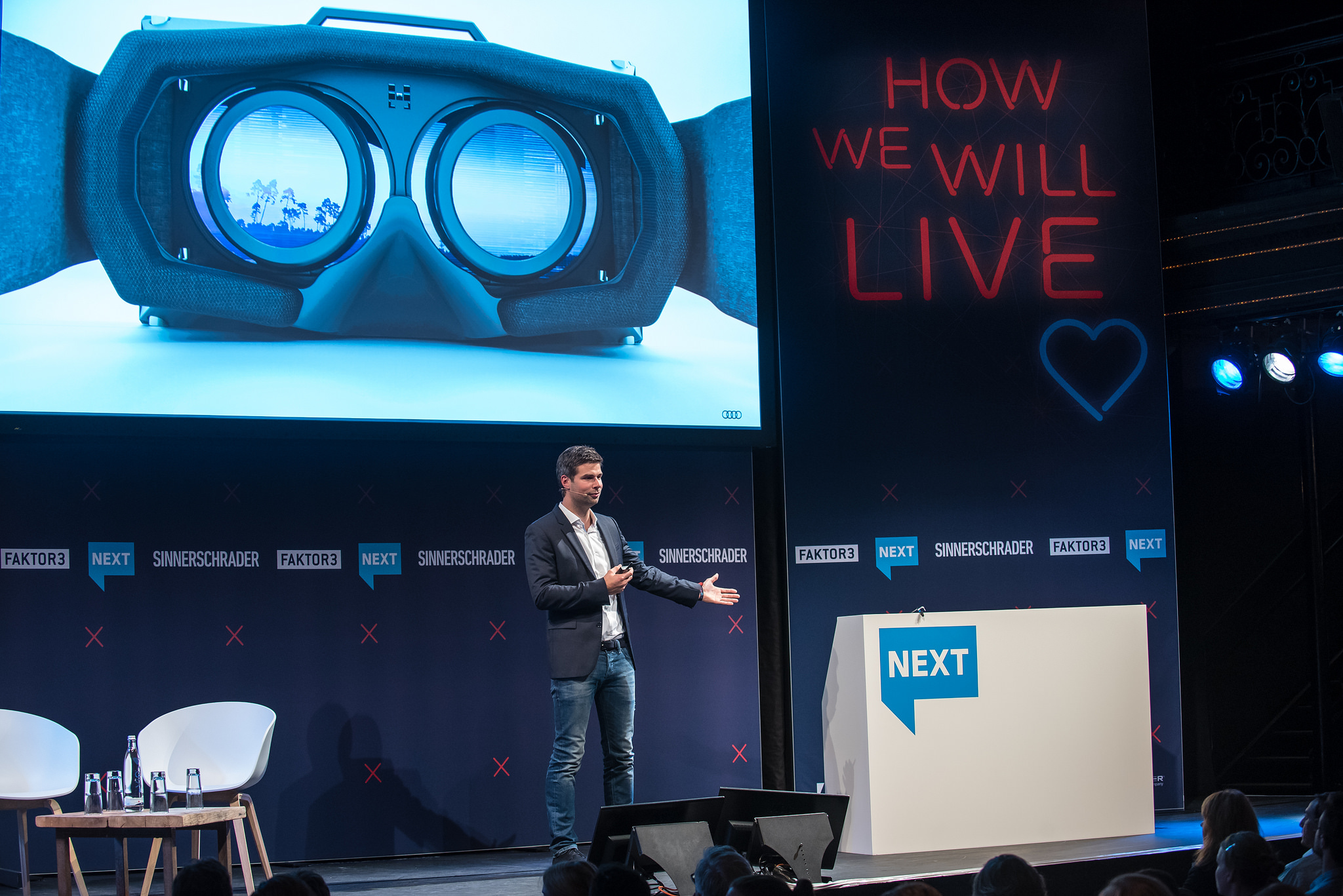One of the main themes at NEXT15 , the two-day tech conference that occurred concurrently with Reeperbahn Festival in Hamburg, was mobility.
The conference attempted to answer the question “How will we move?” with all the opportunities and challenges that it implies. But zooming out and looking at the question in the context of the entire conference – with discussions of mobility disruption, predictive shipping and virtual reality – the question might as well be “Why will we move?”
Perhaps 15 even 20 years will pass before we have full autonomous driving, which gives us plenty of time to consider the new needs, ethical, and legal issues that will have to be dealt with as we transform the way we spend out time in the car.
Moving
Nils Wollny from AUDI discussed how the automobile industry will have to change the kinds of services it provides. A car will not be only means of transport anymore, it will be a mobile office and a living room, connected and fully equipped with devices and applications that will make it so. This, of course, means that there will be an increased demand for innovations that will improve the travel experience and connect cars with other systems in our lives will become more and more demanded.
Imagine driving on your way to a meeting and a chip in your body notifies your doctor for a potential illness. She connects with you and calls you into the hospital for a prevention treatment. On the way back, inputs from your fridge and your doctor notify your supermarket about the products that you need that are best for your health right now. Your car gets notification for a pickup point, where it self-navigates to get your groceries on the way to the meeting. In between, the meeting is rescheduled and your car already knows the new destination where it has to take you.
This is the vision that Richard van Hooijdonk built for us to bring not only autonomous driving but mobility to the next level. He is one of the first people who is literally connected with RFID chips implanted in his body. He does not need keys for his home or his car, no credit card, no membership cards. The data about him makes it possible for all the vendors he interacts with to predict what he needs and provide it just in time whenever and wherever he needs it.
“I don’t need to think, I don’t need to act, I just need to sit!” he shares excitedly.
Fascinated? Trilled? Terrified? What do you think about it? This is the direction where our life and world is going and to a large extent things will start moving around us on their own, so we’ll have to make a choice: resist it, be part of it. or co-create it. The question is, if everything moves for us, why do we need to move at all?
Not moving
Travel? Let’s talk about that! Another topic largely explored at NEXT15 was virtual reality and the way everything around us gets progressively digitalized. Robert Overweg, from Beyond Sports, shared the power and possibilities of virtual reality. He argued that it could score higher than reality when it comes to the experiences and perspectives it can provide.
Virtual travel is one of the most compelling aspects of it because in no time we could see and experience places that are far beyond our reach – a trip to Egypt, a visit to sacred or dangerous places where we couldn’t actually visit. How about being at a private concert with your favorite musician or on the field with your sports idol?
What is the future of mobility?
So, if we could get everything we want and need before we even think about it, and reach the places of our dreams without actually leaving the living room, are we going to turn into quite literally couch potatoes? Or are we going to have more time for meaningful connections, intimacy, touch and just being in each other’s presence? Do we need to think about the way we move or about what moves us?
By all means, those are just things to think about. All we need to remember is that we are in the beginning of it and this is the direction in which our lives are going. The data is growing, the connectedness is growing, we are moving to an API economy, and we will need infrastructure, systems and values to make the most out of it. What could be the role of you and your business in it?
 Nordic Startup News Early Stage Startup News From The Nordics
Nordic Startup News Early Stage Startup News From The Nordics






